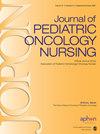Barriers to Palliative Care in Pediatric Oncology in Switzerland: A Focus Group Study
IF 1.9
3区 医学
Q2 NURSING
引用次数: 23
Abstract
Introduction: For children with cancer, early integration of pediatric palliative care in conjunction with curative treatments is recommended. In Switzerland, pediatric palliative care is mostly provided by an interdisciplinary primary oncology team that is mainly composed of nurses. However, only a small fraction of children receive pediatric palliative care and only a minority of them in a timely manner. The main aim was to identify barriers to the provision of pediatric palliative care in Swiss pediatric oncology. Method: This qualitative study consisted of five focus groups. In total, 29 pediatric oncology providers participated (13 nurses, 11 physicians, 4 psycho-oncologists, 1 social worker). Data were analyzed employing applied thematic analysis. Results: Analysis revealed eleven barriers: lack of financial resources, lack of prejob education regarding pediatric palliative care, lack of awareness in politics and policy making, absence of a well-established nationwide bridging care system, insufficient psychosocial and professional supervision for staff, understaffing, inadequate infrastructure of hospitals, asymmetry of factual and emotional knowledge between parents and providers, cultural aspects, irrational parental hopes, and “the unspoken.” Discussion: Awareness should be raised for pediatric palliative care (in particular in demarcation from palliative care in adults) among politics and policy makers which could lead to increased financial resources that, in turn, could be used to improve bridging care, hospital’s infrastructure, and team support. More flexibility for care determining factors is needed, for example, with respect to convening team meetings, short-termed staffing, and reimbursement at the interface between inpatient and outpatient services.瑞士儿童肿瘤姑息治疗的障碍:一项焦点小组研究
简介:对于癌症儿童,建议早期将儿科姑息治疗与治疗相结合。在瑞士,儿科姑息治疗主要由主要由护士组成的跨学科初级肿瘤学团队提供。然而,只有一小部分儿童得到了儿科姑息治疗,只有少数儿童得到了及时的治疗。主要目的是确定瑞士儿科肿瘤学中提供儿科姑息治疗的障碍。方法:这项定性研究由五个焦点小组组成。共有29名儿科肿瘤学提供者参与(13名护士、11名医生、4名心理肿瘤学家和1名社会工作者)。采用应用专题分析法对数据进行分析。结果:分析揭示了11个障碍:缺乏财政资源,缺乏儿科姑息治疗的岗前教育,缺乏政治和政策制定意识,缺乏完善的全国性桥接护理系统,对工作人员的心理和专业监督不足,人手不足,医院基础设施不足,父母和提供者之间事实和情感知识的不对称、文化方面、父母非理性的希望和“潜台词”。讨论:政治和政策制定者应该提高对儿科姑息治疗(特别是与成人姑息治疗的区分)的认识,这可能会导致财政资源的增加,可用于改善桥接护理、医院基础设施和团队支持。护理决定因素需要更大的灵活性,例如,在召开团队会议、短期人员配置以及住院和门诊服务之间的报销方面。
本文章由计算机程序翻译,如有差异,请以英文原文为准。
求助全文
约1分钟内获得全文
求助全文
来源期刊
CiteScore
3.10
自引率
0.00%
发文量
0
审稿时长
>12 weeks
期刊介绍:
SPECIAL PATIENTS NEED SPECIAL NURSES
Caring for children with cancer is one of the most technically and emotionally difficult areas in nursing. Not only are you dealing with children and adolescents who hurt, you must reassure and educate families, balance a multitude of other health care professionals, and keep up with ever-changing nursing practice and care. To help special nurses stay aware of the newest effective nursing practices, innovative therapeutic approaches, significant information trends, and most practical research in hematology and pediatric oncology nursing, you need the Journal of Pediatric Oncology Nursing.
The journal offers pediatric hematology, oncology, and immunology nurses in clinical practice and research, pediatric social workers, epidemiologists, clinical psychologists, child life specialists and nursing educators the latest peer-reviewed original research and definitive reviews on the whole spectrum of nursing care of childhood cancers, including leukemias, solid tumors and lymphomas, and hematologic disorders. JOPON covers the entire disease process--diagnosis, treatment, recovery, and survival, as well as end-of-life care.
Six times a year, the Journal of Pediatric Oncology Nursing introduces new and useful nursing care practice and research from around the world that saves you time and effort. Just some of the spirited topics covered include:
Cancer survivorship including later-life effects of childhood cancer, including fertility, cardiac insufficiency, and pulmonary fibrosis
Combination therapies
Hematologic and immunologic topics
Holistic, family-centered supportive care
Improvement of quality of life for children and adolescents with cancer
Management of side effects from surgery, chemotherapy, and radiation
Management of specific symptoms/diseases/co-infections
Medication tolerance differences in children and adolescents
Pain control
Palliative and end of life care issues
Pharmacologic agents for pediatrics/clinical trial results
Psychological support for the patient, siblings, and families
The dynamic articles cover a wide range of specific nursing concerns, including:
Advanced practice issues
Clinical issues
Clinical proficiency
Conducting qualitative and quantitative research
Developing a core curriculum for pediatric hematology/oncology nursing
Encouraging active patient participation
Ethical issues
Evaluating outcomes
Professional development
Stress management and handling your own emotions
Other important features include Guest Editorials from experts in the discipline, Point/Counterpoint debates, Roadmaps (personal insights into the nursing experience), and Proceedings and Abstracts from the annual Association for Pediatric Hematology/Oncology Nurses (APHON) conference.
Your special patients need special nurses--stay special by subscribing to the Journal of Pediatric Oncology Nursing today!
This journal is a member of the Committee on Publication Ethics (COPE).

 求助内容:
求助内容: 应助结果提醒方式:
应助结果提醒方式:


